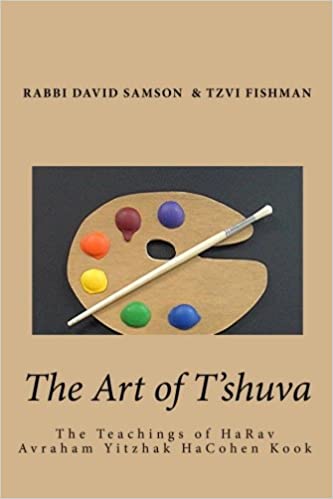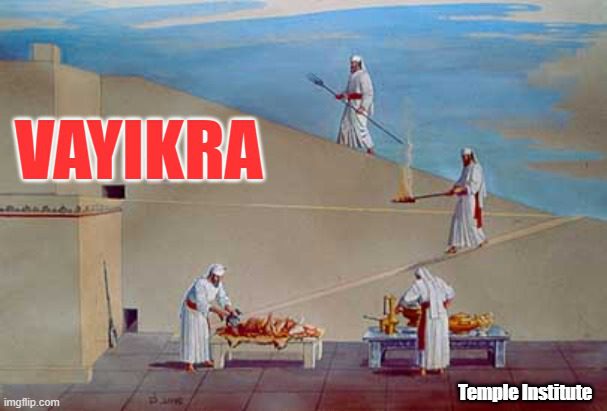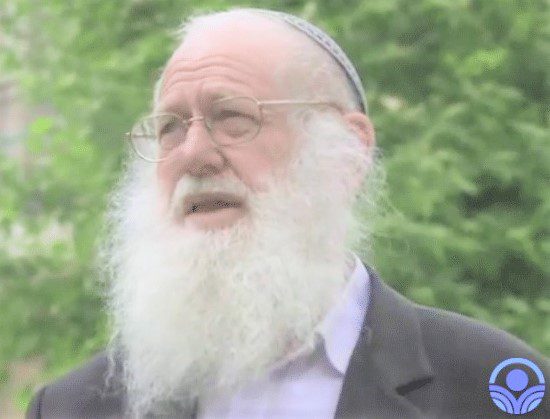From the book, “The Art of T’shuva” by HaRav David Samson and Tzvi Fishman
Based on “Orot HaT’shuva” by HaRav Avraham Yitzhak HaKohen Kook

We will learn in subsequent chapters that the national t’shuva of the Jewish people is inspired by the nation’s return to the Land of Israel, and to our national spiritual treasure, the Torah. In this chapter, we shall focus, not on the comprehensive t’shuva of the nation, but rather on the symbiotic relationship between an individual’s t’shuva and Torah.
YOU CAN’T HAVE ONE WITHOUT THE OTHER
First, we must understand that Torah is not external, factual knowledge like the knowledge of science, mathematics, or linguistics. Torah is an inwardly-directed knowledge which has the power to influence and change a person, to refine a person’s sensitivities and to connect him to the holy, spiritual foundations of life. The study of Torah is not a quantitative amassing of information and theories like other knowledges. It is a qualitative experience demanding both moral and intellectual involvement, and a desire to make Torah ideals an essential part of one’s character. When a person learns Torah and discovers the exalted harmony and goodness of Creation, his will is affected, stimulating yearnings for G-d. Because his will for goodness is enhanced, his desire for t’shuva is strengthened as well (Oreot HaTorah, 6:1, by Rabbi Kook).
The Talmud teaches that G-d created the evil inclination and the Torah as its cure (Kiddushin 30B). Rabbi Kook explains this as meaning that the will cannot be perfected except through the purifying influence of the Torah. The Torah strengthens the will and directs it towards holiness.
The more an individual learns Torah, especially the deeper wisdom of Torah, the more knowledgeable he becomes about his true spiritual nature and about the nature of his will. He comes to recognize that the entire world is Divinely inspired to attain a purer connection to G-d. This higher contemplation brings him to a higher level of t’shuva.
“True, complete t’shuva demands lofty horizons of perception, in order to be raised to the resplendent world which abounds in holiness and truth. This can only be done by being immersed in the secrets of life found in Divine wisdom and the depths of the Torah. This necessitates physical cleansing and the purification of one’s traits as aids, so that the clouds of lust will not darken the intellect’s clarity. But the study of Torah must precede everything else, especially the study of the higher, supernal Torah, for it alone can shatter all of the iron barriers which separate the individual and the community from G-d” (Orot HaT’shuva 10:1).
T’shuva and Torah go hand-in-hand. Like bees and honey, you can’t have one without the other. The more a person studies Torah, the more inspired he is to do t’shuva. Similarly, to the extent that a person purifies himself through t’shuva, his study of Torah is blessed and made more clear (Orot HaTorah 6:5).
A person who is satisfied with a routine performance of the Torah’s commandments can get by with a minimum of t’shuva, but to enter into the deep, secret wellsprings of Torah, a person must be pure of all unholy influences. To reach this state of cleanliness, a great deal of t’shuva is required. The depth of a person’s t’shuva enables him to understand greater degrees of Torah, for the ability to understand Torah does not solely depend on one’s intellectual skills in clinically analyzing a passage of Talmud — the essence of Torah is when the person has internalized its profound moral concepts into his being, so much so that he yearns for them with all of his might. Only when a person has reached this level, when his will is so refined that it longs only for goodness, can he properly understand the deep secrets of Torah. For this reason, people who profess to learn Kaballah without doing t’shuva are not really learning at all. They study the formulas of mysticism, but the import of the teachings does not enter their hearts, for G-d only unravels the secrets of Torah to one who has prepared his soul to receive them.
“It is obvious that it is impossible to learn the secrets of Torah without t’shuva. For in these great matters, the will and the intellect are united. When one understands these subjects with a mighty will for the good, one yearns for them and devises many general and specific strategies to obtain them. However, when sins form a barrier, the will is damaged, and since one cannot rise to the highest, innermost level of the will… wisdom cannot grow in him, and the channels of understanding the secrets of Torah are blocked (Orot HaT’shuva 10:8).
Simply put, if you want to understand the inner workings of existence, you have to clean up your act. Just like you cannot purify yourself in a ritual bath while holding on to a dead mouse, you cannot learn the secrets of Torah while you are living in sin.
Recently, the media has reported a boom in the learning of Kaballah. Movie stars in Hollywood, stockbrokers on Wall Street, and students in college are flocking to Kaballah clubs. While the efficacy of this learning is questionable so long as the would-be mystics remain ensconced in their usual lifestyles, the reason behind their spiritual searching is important to note:
“Therefore, in the last generations, in which the darkness of lust has so greatly increased, and the strength of the body has weakened, until it is impossible to stand firm against the material onslaught, it is imperative to illuminate the darkness with the mystical secrets of Torah, which know no boundaries, and which elevate (seekers) on wings of lofty freedom to the highest ascents, and which spread the transcendental joy of the beauty of holiness to depressed and spiritually darkened souls” (Rabbi Kook’s “Orot HaKodesh,” Part 1, Pg. 92. Mosad HaRav Kook Publishers).
THE SECRET OF THE SECRETS
When speaking about the secrets of Torah, Rabbi Kook is not suggesting that everyone learn the Kaballistic formulas found in layman’s books on Kaballah. He is not talking about learning the mystical meanings of the sefirot, the divine emanations, nor about yichudim, and the like. While all of these matters are required learning for those special Torah scholars who have reached states of extraordinary purity, we normal people are to focus on how these formulas appear in the world, in the life of the individual, and in the life of the nation of Israel as it rises out of exile to Redemption. In effect, Rabbi Kook’s writings illuminate the deeper understandings of the Torah as they are manifesting themselves today, without employing the technical language of the Kaballah, with all of its metaphors and abstractions.
JOE THE STOCKBROKER
We have mentioned that a person who desires to learn Torah without the willingness to abandon a life of sin will not benefit by the Torah’s healing power. In the light of Rabbi Kook’s teachings, let’s follow a young stockbroker, Joe, to a class in Jewish mysticism, and see what is taking place in his soul.
First of all, though Joe might have been a top student at Princeton, his intellectual faculty has been distorted by sin. He may be a whiz in math, but his moral intelligence is dull. Because of the essential unity of existence, his spiritual darkness also darkens the light of the mind. On the most basic level, he does not know the difference between right and wrong. Sure, he knows that murder is evil, but other sins, including serious transgressions like stealing and adultery, do not seem so bad. In many instances, moral wrongdoings do not seem like sins at all (Orot HaT’shuva 10:5).
Rabbi Kook explains that the dulling of Joe’s intelligence is due, not only to his own sins, but to the polluted and errant values of the society to which he belongs. These distorted mores are caused by the general sins of the community. Though the word of G-d is always present, in Torah, in religion, in tradition, and in the exquisite orderings of heaven and earth, the immoral norms of society act as a barrier, blocking the Heavenly light. Because Joe has become detached from Divine ideals as a result of his sins and the sins of society, he has become prey to the darker forces of life and to his weaker self. He lacks the moral fortitude to hold himself back from sin. It is only through the purification of t’shuva that his will for goodness can be strengthened and his clarity of thought restored.
When Joe attends a class in Torah and confronts its sparkling light, if he is a true seeker who truly desires a higher enlightenment, he will sense his inner darkness and reach out for the deliverance that only t’shuva can bring. Though there be wrongdoings which he cannot address at the moment, whether through spiritual weakness or practical impediments, the Torah that he continues to learn will bring clarity to his thinking and fortify his will, providing him with the moral resolve which he lacks.
As he elevates himself to a higher perception of life, his sins will rise up before him to hold back his t’shuva. For instance, if he committed adultery with a married woman, he may ask himself how can he ever confess his wrongdoing and face up to his wife, and to the betrayed husband. If he fails to redress this transgression, it will stand in his way like a wall, blocking out the spiritual light for which he longs. To the extent that he puts his t’shuva into action, his thoughts will be straightened, his perceptions blessed, and his life will be filled with joy.
If Joe has read Rabbi Kook writings on t’shuva, he has a sign letting him know if his path of t’shuva is on the right track. If he feels a joy in the learning of Torah, if he is able to clearly grasp its deep, mystical concepts, then his t’shuva is real. With each sin that is corrected, additional vistas of learning open before him. The most supreme enlightenment comes when he realizes in all of his being that cleaving to G-d is the greatest joy in life (Orot HaT’shuva 10:4) Reaching this level, he will experience a profound humbleness, for, “How can any person feel an egotistical pride when he stands before the Source of all perfection, before the infinite light that transcends all blessings and praises?” (Ibid).
When Joe, the stockbroker, realizes that t’shuva makes the world go round, and not the New York Stock Exchange, he has truly become a baal t’shuva.
PRAYER FROM THE HEART
It is impossible to speak about the relationship between t’shuva and Torah without mentioning the vital importance of prayer. Often, in the light of the Torah, when confronted by one’s wrongdoings and moral impurity, one longs for a farreaching t’shuva which is clearly beyond one’s immediate grasp. At times, this great leap forward cannot be actualized until it is accompanied by heartfelt prayer. It is prayer which opens the stream of Divine assistance which is needed to overcome weakness and fear, hurdle over chasms of darkness, and redress every transgression of the past, so that ever-new perceptions can be grasped. King David was a master of t’shuva and a master of prayer. To this day, his Psalms are our ladders to G-d.
To summarize, the more you learn Torah, the more t’shuva you will be inspired to do — and the more t’shuva you do, the more Torah you are able to learn.






